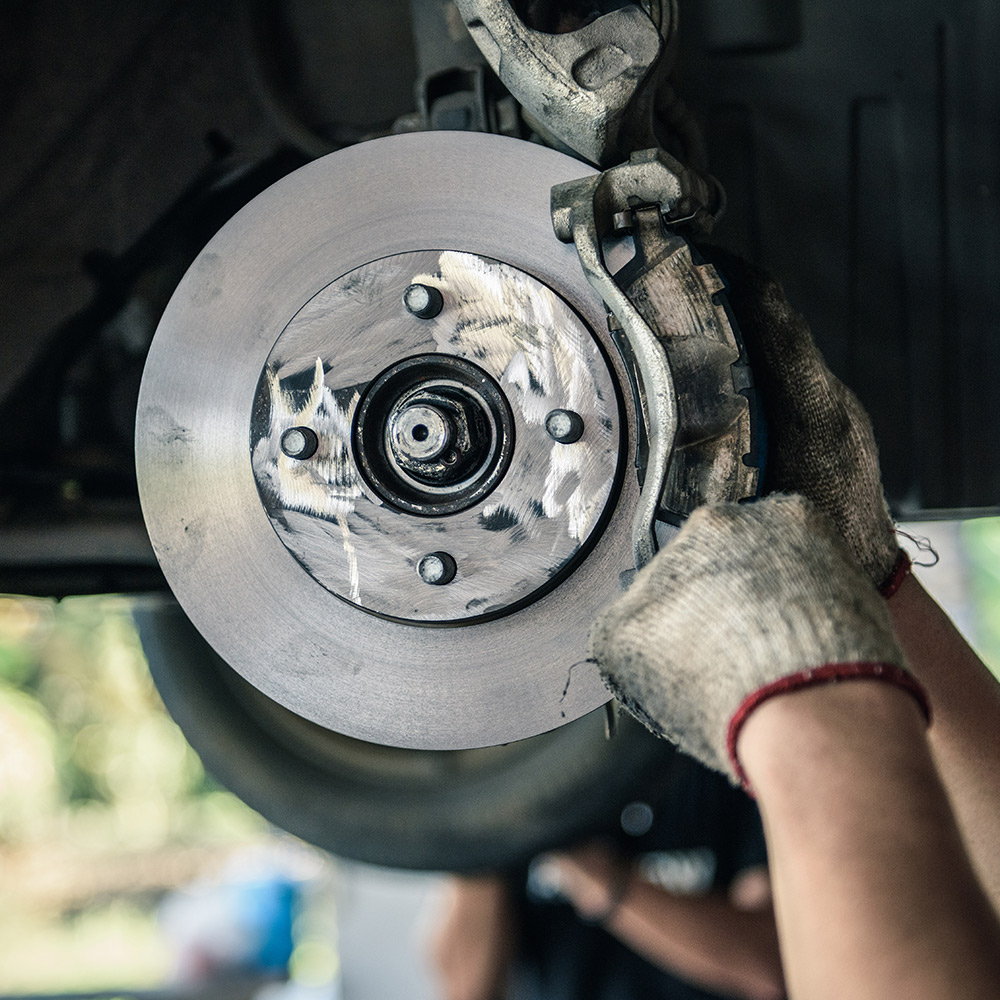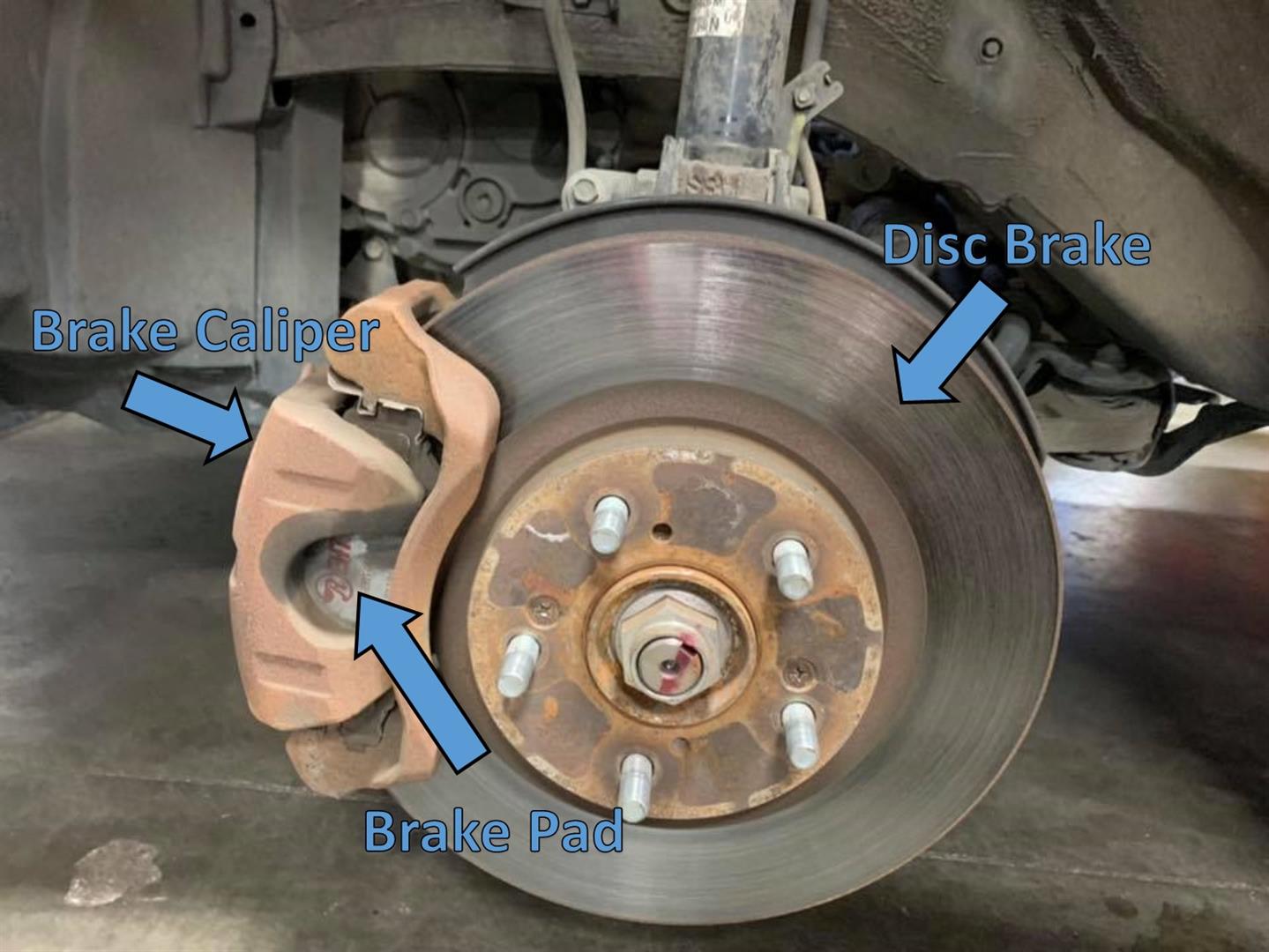
Brake fluid is a hygroscopic fluida fluid that absorbs water. Replacing brake pads and rotors–its not as hard as you think.

Many times if pads are run too hard too fast the pad surface can heavily transfer think literally melt onto the rotor when the car is parked which causes an uneven area of pad material deposited on the brake rotor.
Is it hard to change brake pads. Go for a safe easy drive to break in the new brakes. On a safe road accelerate to around 50mph. Apply the brakes not too hard and slowly bring the vehicles speed down to 30mph.
Replacing brake pads and rotors–its not as hard as you think. Sean Szymkowski July 27 2017 Comment Now. No matter if you buy a new car a pre-owned car or lease a vehicle maintenance is.
The pads in fixed-caliper brakes are also easy to change but the process is slightly different so well cover it in another instructional piece. Do one side then the other. For reasons that will.
Changing your brake pads is a much cheaper option than taking it to a car shop which can usually lead to an expensive fee for anyone. For the cost of materials youll be able to get your car stopping properly after following these steps. Changing brake pads is as hard as you make it.
It will depend on your mechanical abilities and the tools you have to work with. If you have a floor jack and a set of jack stands and a set of good hand tools then it should be fairly easy. You definitely will need a brake caliper compressor and some brake bleeder equipment.
Replace your brake pads with the Saturday Mechanic Ben Wojdyla. Learn how to do it yourself with his step-by-step car repairs and upgradesSay so long to sq. Brake maintenance though isnt always as simple as just removing and replacing pads and rotors and it is more involved than say a standard oil change.
Installing new brake pads can quickly. Need new brake pads and rotors. Learn how to replace your brakes yourself and save more than half the cost of a shop.
I show you every step including how to. You only need to bleed air out of the lines if you do something to introduce air into the system. Replacing brake pads does not require you to open your brake lines.
If you DO open your lines however you SHOULD bleed your brakes to make sure you dont have any air pockets. Any mechanic will tell you that its time to change your brake pads when the lining is in the 3 mm to 4 mm range. For context know that the standard thickness of new brake linings is 12 mm.
The first half of your brake pads lifespan is usually carefree. As it wears past 6 mm though listen for the sign that its time. In most cases youll want to replace brake pads when they get down to about 3mm.
While you can sometimes get away with 2mm that is right around where the metal wear indicator gets exposed and causes a squealing sound against the disc. Many times if pads are run too hard too fast the pad surface can heavily transfer think literally melt onto the rotor when the car is parked which causes an uneven area of pad material deposited on the brake rotor. Once you drive again new pad material is then deposited on top of and around this extra deposit creating an un-even surface on the rotor.
Is Sludge Buildup Causing a Hard Brake Pedal. Source Mike Aguilar. Brake fluid is a hygroscopic fluida fluid that absorbs water.
Over time this causes sludge to build up in the brake system and this sludge can make it seem like the brake booster has failed. Brake fluid should be almost clear with a slightly amber tint. The larger the brake pad contact area the more stopping power that is available to the driver.
Friction also creates heat which can be damaging to pads and rotors. Rotors can warp causing a brake pedal pulsation and brake pads will wear prematurely if the heat is not dissipated requiring replacement. That depends on a lot of factors.
If you drive only 8000 miles a year but its mainly in a crowded urban area such as Chicago Boston or Washington DC you will need to replace brake pads or. Place the replacement brake pads into the caliper mounting bracket. Install the new brake pads in the caliper.
They should easily slide in though if your original brake pads were held in place with a retaining pin youll need to replace this at this point. Be sure to wipe away any excess lubricant from the pads. When a brake pad wears down on a rotor it will often make a squeaking sound when applied.
This is an audible safety measure to make sure that the driver knows to change the brakes soon. On a power brake system it is recommended that your ratio be 41. Many older vehicles in the 50s used a pedal ratio of 11.
This will not work on cars equipped with a vacuum brake booster. Is your brake booster correct for weight of the vehicle. Using too small a brake booster on a heavy vehicle will give a hard pedal.